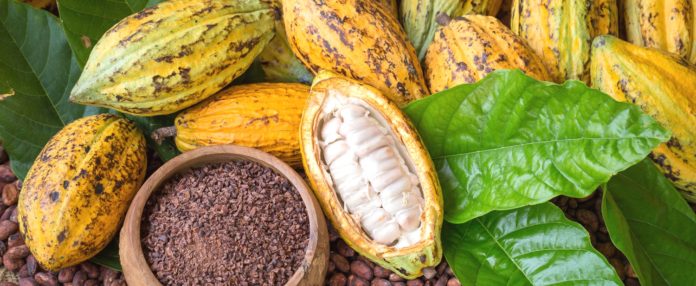As confectionery groups scramble to reduce added sugar, chocolate sweetened with cocoa fruit pulp is about to hit supermarket shelves with food giant Nestle ready to launch its “Incoa” bar.
Using cocoa fruit pulp, which is normally discarded, to flavour products reduces sugar and cuts food waste while boosting the income of cocoa farmers who can “upcycle” their cocoa by selling both the pulp and the beans.
That ticks several boxes with health- and environmentally-conscious consumers.
“This is a big launch, we give it to all the customers who want it and don’t limit supplies,” Alexander von Maillot, Nestle’s global head of confectionery, told Reuters this week.
The company is launching Incoa, which has no added sugar, in supermarkets in France and the Netherlands with other European markets to follow.
Nestle is sourcing the raw material from cocoa farms in Brazil but also working with partners in West Africa to see if pulp production could work there. Von Maillot said cocoa farmers could boost their income by 20-40% if they also sold the pulp.
Lamine Keita, a cocoa farmer in Duekoue, Ivory Coast, said he hadn’t yet been asked to sell cocoa fruit pulp. “If we can sell more than the beans to increase our income, that’s all we can ask for because beans alone are not enough to get us out of poverty,” he said.
Jerome Koffi, who cultivates cocoa on four hectares of land in Soubre, also said he’d gladly sell more, but at the moment there was only demand for beans.
Fruit pulp doesn’t come cheap – Incoa bars on Dutch retailer Albert Heijn’s website cost about 50% more than other dark chocolates. But Von Maillot said although the cost meant pulp was not suitable for replacing sugar in mainstream products, there may be other uses for cocoa fruit chocolate, for example in baking.
UPCYCLING TREND
Lindt & Spruengli and Germany’s Ritter Sport have also launched limited editions of cocoa fruit chocolate which sold out quickly. Both said they planned to launch the products on a larger scale once enough cocoa fruit was available.
Swiss chocolate maker Felchlin’s cocoa fruit preparation found its way into macarons and truffles that high-end chocolatier Spruengli – unrelated to Lindt – called a “world novelty”.
Lindt and Felchlin source cocoa fruit pulp from Swiss-Ghanaian startup Koa https://koa-impact.com, which uses solar-powered mobile units to process fresh pulp from 1,600 small farmers. Koa is able to process 250 tonnes a year but wants to increase its capacity 10 fold within the next two years.
Industry major Barry Callebaut, meanwhile, is getting ready to supply its WholeFruit Chocolate to chefs and artisans. It has also set up a dedicated brand, Cabosse Naturals, to sell cocoa fruit ingredients to customers like Mondelez International to use in fruity snacks.
The Upcycled Food Association said commercializing cocoa fruit worldwide could reduce greenhouse gas emissions by more than 20 million tonnes per year. It defines “upcycling” as using food ingredients that humans wouldn’t consume, with verifiable supply chains and a positive environmental impact.
Brigette Wolf, head of Mondelez’s SnackFutures, said upcycling appealed to those who want to “make an impact” with their food choices.
The company plans to have three varieties of CaPao Cacaofruit Fruit Bites on sale this year, in more than 2,000 stores by the end of 2021 or early 2022.
AFRICAN TASTES
Commodities specialist Tedd George said extracting additional value from the crop could boost West Africa’s cocoa sector because current incentives were only focused on growing and selling more beans.
“There’s an opportunity for new products made from cocoa fruits to also be health products and that changes the game for the value you can get out of them,” he said, citing health benefits associated with dark chocolate.
Nestle has been repositioning itself as a health and wellbeing company, reducing sugar in its products, and has also set sustainability targets including cocoa.
George said the launch of cocoa fruit products didn’t address fundamental issues like child labour or deforestation but could fuel investment and drive change in cocoa-producing communities.
He said companies should also develop cocoa products for African tastes. “If there was also local demand for cocoa that would boost farmers’ pricing power.”








